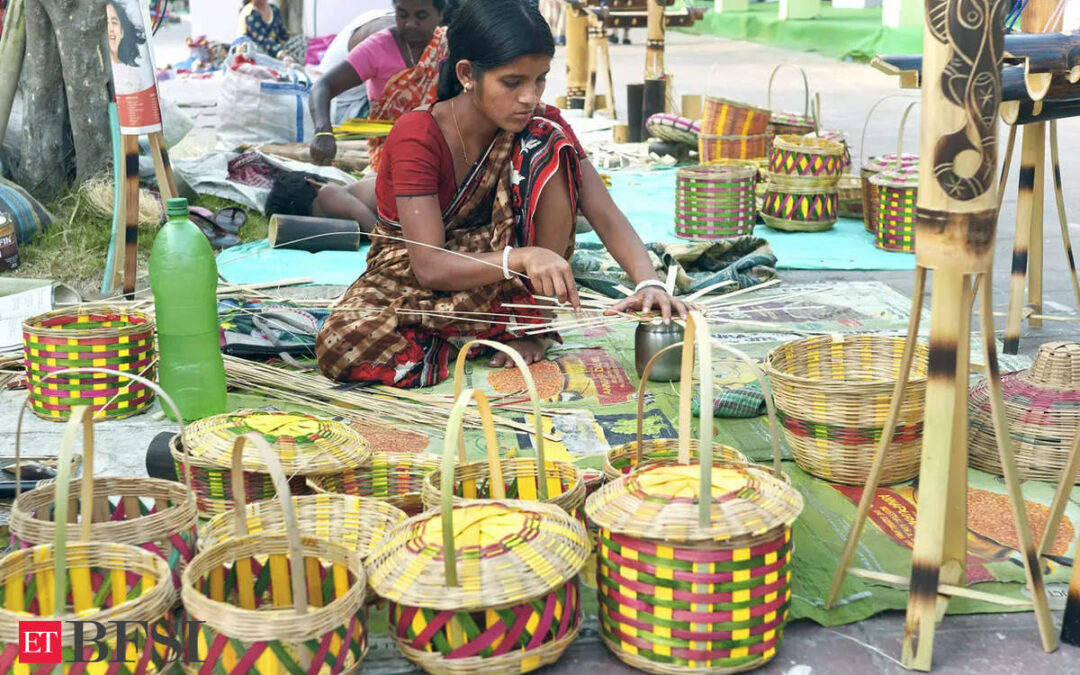Over the last decade, the marketplace in india is heavily dominated by the e-commerce space. With time, this space has also developed trust of the buyers.
The burgeoning middle class is relying heavily on the Open Network for Digital Commerce (ONDC) platforms that has led to India’s e-commerce valuation at USD 72 billion in 2022, and this is expected to surge to USD 325 billion by 2030, according to a report by Deloitte.
E-commerce platform has also glittered the small businesses providing them a direct platform to reach the masses.
MSME and SME businesses are harnessing the potential of this space very diligently, specially during the festive season. Artisans, weavers, women-led businesses, and persons with disabilities are able to increase their business penetration in the online space.
Online platforms are also taking an extra step to help up these businesses as the e-commerce giant – Flipkart – has its ‘Flipkart Samarth program’ with the goal of creating a sustainable and inclusive platform for underserved domestic communities.
It emphasises on empowering and integrating artisans, weavers, women-led businesses, and persons with disabilities. Flipkart has been collaborating with many government agencies and NGO partners to bring on rural entrepreneurs from all across the nation into the e-commerce fold.
Tale of entrepreneurs on e-commerce
Maniabandha, a small village in Odisha, nestled a community steeped in the timeless art of handloom weaving.
Post-Covid, the business was severely hit and their livelihoods were jeopardized and soon, they found their lives at a standstill.
Priyadarshini Panda and her husband Sandeepta Kumar Kar, who belong from the same community narrated their tale saying, “On social media, I saw all these small businesses that showcased great work and did well. This is when the inspiration to start an online business hit.”
The duo worked tirelessly to create opportunities, and in the span of two years, they have a unit of 10 dedicated weavers offering their expertise.
In their journey, Flipkart Samarth program played a key role.
Another story is from the idyllic town of Munnar. Vivek Devadas, a farmer from the region, was engaged in the farming of organic produce and products. The game was not easy for him as he wasn’t able to reach customers at a mass level. It was with the induction on online platform that his business shot up.
With online, his stocks products such as unflavored black tea, organic black pepper, premium cloves, and cold-pressed coconut oil, reaches conscious shoppers across India.
Challenges associated with MSMEs
The festive season in India is a mixed blessing for the cash-strapped MSME sector. While it brings increased demand and sales opportunities, it also strains working capital due to the need for additional inventory, labor, and marketing.
While speaking on the challenges, Rakesh Krishnan, Vice President and Head – Marketplace, Flipkart said, “MSMEs come with their own set of challenges but we believe that these obstacles can be overcome with the right support and technology adoption. One of the key challenges that we are addressing at Flipkart, is the need for upskilling and reskilling MSMEs.”
We conduct nationwide workshops and training programs, helping sellers digitize their businesses and make informed decisions based on our platform’s insights, he said.
“Another hindrance to the growth of MSMEs is limited access to necessary infrastructure, such as logistics and warehousing networks. Flipkart’s robust supply chain solutions facilitate the seamless movement of shipments, connecting sellers, customers, and stakeholders from tier-3 cities and beyond,” he added.
Sanjay Sharma, MD and CEO, Aye Finance said, “The challenge lies in managing cash flow to seize the opportunities while avoiding overextension. The demand for working capital by SMEs varies across cities, depending on the local economy and consumer behavior. Urban centers typically experience higher demand due to greater commercial activity, while rural areas may have more modest requirements.”
Aye Finance supports MSMEs by providing tailored financial solutions to help them navigate these cash flow challenges effectively.
“We closely monitor these trends to tailor its financial solutions to the specific needs of businesses in different regions.”
“As digital technology continues to advance, it will simplify and expedite the financing process, making it even more accessible for MSMEs. The integration of alternative data sources and machine learning will enhance risk assessment, expanding the availability of financial products,” he added.










